The vast Russian Federation, spanning two continents with over 180 ethnicities and a multitude of religions, presents a complex governance challenge. After the fall of the Soviet Union, Russia became a democracy. Yet it has not transitioned to a multiparty, liberal state. Instead, it became an authoritarian system led by President Vladimir Putin. What would it take for Russia to change course? Scholars debate reform’s viability, with some suggesting systemic collapse might be a precondition for change. Its sheer scale and ethnic heterogeneity seemingly render Russia ungovernable without a strong, often authoritarian central authority. This implies that an assertive central power is the only mechanism to maintain national cohesion.
Russia’s history reveals remarkable resilience. Over eight centuries, it has faced potential collapse several times, not only recovering but also expanding its territory in some instances. This resilience evokes the image of the Nevalyashka, a traditional Russian toy that rights itself. It underscores a profound tenacity within the state and society, enabling repeated rebounds from near collapse. The 1991 dissolution of the Soviet Union’s dissolution was a significant test of this resilience. Defying predictions, Russia maintained its territorial integrity.
After this collapse, anti-Westernism emerged as a powerful unifying ideology, drawing on cultural memory to create a sense of common purpose. Additionally, the absence of strong regional rivals during the turbulent post-Soviet years allowed Russia to navigate this critical juncture without significant external threats.
This stability, however, has come at a cost. The unifying anti-Western ideology has also fueled Russia’s contemporary imperial ambitions. It drives an increasingly aggressive foreign policy aimed at reasserting global influence. This transformation reflects a broader historical pattern: the need for internal cohesion and national survival often propels Russia towards expansionism and authoritarian tendencies.
The soul of Russian identity
Shared characteristics and unifying values act as the glue that binds people together into a nation. Two different kinds of values can underpin national unity: cultural and historical values shared by an ethnic majority, or unifying values that transcend ethnicity. In other words, nations form on either an ethnocultural or supra-ethnic basis.
Immigrant states like the United States are the prime examples of supra-ethnic unity, but not the only ones. Switzerland, for instance, has functioned as a supra-ethnic state since the 16th century, solidifying its national identity around the concept of neutrality in the 19th century. Similarly, Pakistani religious nationalism unites the people of the multinational state of Pakistan.
Unlike Western European nation-states like France, Italy and Germany, Russia was founded as a multi-ethnic empire. Thus, it built its unity on supra-ethnic values. These take the form of a unifying, often religious ideal; a shared goal; a grand vision for the future or a regional mission.
Early 20th-century philosopher Georgy Fedotov argued that Russians lacked the “arrogant consciousness of a superior race” that plagued, for example, the British in India. Instead, they readily communicated with their subjects and even blended with them. This openness allowed local aristocracies to integrate into military and administrative roles across the empire. This facilitated a soft Russification across the nation’s vast territories.
Russian philosopher Nikolay Danilevsky encapsulated this process in his theory of Russian civilization, which emphasized granting privileges to local elites and partially emancipating peoples on the empire’s outskirts. These combined factors were crucial for creating a unified Russian nation over the centuries.
Throughout its history, Russia has relied on unifying values for national unity, but these have undergone significant shifts. Initially, Orthodox Christianity served as a cornerstone, reinforcing the Tsar’s authority and binding the population through shared faith. As the empire expanded, absolutism emerged as a unifying force, fostering a sense of collective identity among its diverse peoples.
The Soviet era offered a stark contrast, emphasizing proletarian internationalism and a global communist revolution. It aimed to unite citizens under the banner of Marxism-Leninism. However, the October Revolution shattered the Tsarist order, and the 1991 Soviet coup attempt, which led to the Soviet Union’s collapse, destroyed the unifying values with which the revolution replaced it. The transition to a post-Soviet world left a significant ideological vacuum.
This ideological vacuum contributed to the USSR’s collapse in 1991, which fractured into 15 independent states. Three key factors were at play. First, Russia, the linchpin of the USSR, initiated the break-up by declaring its withdrawal from the union alongside Belarus and Ukraine. Second, the USSR lacked unifying values by the early 1990s. Disillusionment with communism was widespread, and the “sacred mission” of the first socialist state held no sway. Nationalist movements arose across the republics, dominating public discourse and pushing for independence. Finally, by the late 1980s, national elites emerged within the Soviet republics. These elites prioritized the independent development of their nations over loyalty to the central union.
Russia’s state-declared values have their limits
The maintenance of this ideological unity as as important today as it always has been. The Russian government takes an active role in promoting traditional values like religious adherence, especially to the Russian Orthodox Church, and family loyalty to foster national unity. These actions form part of their strategy to bolster societal cohesion and national identity.
However, there are challenges, like the perceived gap between the publicly declared values and the actual experiences of many Russian citizens. This gap has its roots in the Soviet era, a time when the state required citizens to outwardly conform to state-sanctioned ideologies, regardless of their private beliefs. This historical backdrop impedes the government’s efforts to authentically resonate their promotion of traditional values with the people, limiting their success.
Different Russian thinkers proposed various ideas on traditional values: the old Orthodox concept of “Moscow as the Third Rome,” Danilevsky’s vision of Pan-Slavism encompassing both politics and culture, Fyodor Dostoevsky’s idea of cultural synthesis and most recently, the emphasis on traditional values actively promoted by the Russian government. The current state presents loyalty to conservative traditions as the unifying force for all Russians. The Russian government promotes the view that these traditions, including religious customs and universal values like patriotism, dignity and service to the Fatherland, are ingrained in the people. In recent years, the Russian state has also actively incorporated homophobic narratives into this concept.
However, a study by the Institute of Sociology of the Federal Research Center of the Russian Academy of Sciences and the Higher School of Economics suggests that traditionalism may not be a unifying force for Russian society. The study found that traditional values occupy a middling position on the value scale of Russians compared to other basic values like self-enhancement, security and benevolence, using a scale of values developed by Israeli sociologist Shalom Schwartz.

Evolution of basic values of the Russian population, 2006–2021.
These latter values became more important during the COVID-19 pandemic. People also prefer autonomy to traditional values. Rounding out the list are individualistic values: enjoying life (hedonism) and a desire for risk and novelty.
In recent years, hedonism has surpassed power as a value. The value of power significantly decreased after the suppression of democratic protests in 2019. People seem to have concluded that it is safer and easier to delegate responsibility for their well-being to existing power structures. However, the role of traditional values remained relatively stagnant, even declining slightly between 2006 and 2021.
By the early 2000s, Russians transitioned from focusing on survival to embracing consumerism. Rising incomes fueled spending. When income growth stalled in 2014, household debt surged. Sales channels became hubs for socializing and spending. Increased income and access to credit allowed working-age Russians to move beyond basic necessities, pursuing goods and services associated with status. Rising incomes empowered consumers to prioritize an improved quality of life, even as social stratification widened. As the older generation scarred by the Soviet Union passed away, a new generation emerged, longing to experience life.
Despite the image that political and religious leaders attempt to promote of Russia as an Orthodox nation, Russians lean secular. True religiosity involves ritual observance, not just belief or celebrating major holidays. A Romir Research Group survey with Gallup International/WIN Association’s Global Barometer on Hope and Despair shows that 55% of Russians identify as religious. However, only 9% of those who called themselves Orthodox in 2007 followed all rituals and participated in church life. Even more concerning, 21% lacked knowledge of communion, a core Christian practice.
A 2010 Public Opinion Foundation survey found only 4% of self-identified Orthodox Christians regularly attend church. Notably, this “churched” demographic skews heavily towards elderly women. Similarly, in 2022, only 7% of those identifying with various faiths considered themselves truly religious. This is not surprising given Russia’s history of over 70 years of state-sanctioned secularism.
Traditional values often emphasize collectivism, prioritizing the family, community and social harmony over individual needs. However, a study reveals a slight decline in the importance Russians place on collectivism. Interestingly, Russia leads Europe in individualistic values — prioritizing personal self-assertion — which directly contradicts the claim that collectivism defines Russians. This stands in stark contrast to countries like Sweden and France, which are known for their strong collectivist tendencies. Family values also appear less important in Russia. The high divorce rate (73%) and poor demographic situation suggest a weaker emphasis on family compared to the rhetoric.
This disconnect between words and actions echoes the Soviet era, where public pronouncements often masked private beliefs. People swore allegiance to communism, but lacked understanding of Marxist theory or faith in those ideals. This pattern of performative pronouncements seems to have persisted.
Anti-Westernism is a Russian national idea
With traditional sources of purpose in decline, Russia increasingly relies on anti-Western sentiment to unify its people. This ideology is a form of xenophobia that repudiates Western values and aspires to resurrect past glories. It permeates the social fabric, shaping Russia’s assertive foreign policy and imperial ambitions. Anti-Westernism manifests in geopolitical maneuvers and a confrontational stance in international relations, fostering tension with the West.
While unlikely to secure complete national cohesion on its own, this external xenophobia has forged a shared identity, a feat that eluded preceding ideologies such as Russian Orthodoxy, Marxism-Leninism and the floundering liberal reforms of the late Soviet era. Filling the ideological vacuum, this narrative provides a unifying identity that resonates with the populace.
A large segment of Russian society actively opposes the West or advocates for a sovereign development model. A 2022 All-Russian Public Opinion Poll reveals that a significant 54% of Russians explicitly express hatred for Western values. An additional 27% hold similar views on Western development, forming a periphery of the core anti-Western group. This peripheral group differs by allowing a minimal inclusion of Western values in Russia, as long as it does not alter the national identity. Combined, supporters of sovereign development constitute a staggering 81% — the overwhelming majority of Russian society.
A wide range of social and ethnic groups in Russia support this ideology, including many wealthy people who often saw their wealth increase during the war. They hold a xenophobic worldview, rejecting everything Western and foreign in general. This ideology stems from 19th-century Russian Slavophilism and gained further momentum under Stalin’s repressions and his anti-cosmopolitanism campaign. They view Mikhail Gorbachev’s perestroika — the policy of restructuring the economic and political system — and the 1990s’ liberal reforms as a national betrayal, considering Russian liberals agents of the collective West.
However, their ideology extends beyond anti-Westernism. It also emphasizes great-power status for Russia, a strong central government for order and development and social justice. While not pure great-power chauvinism — for ethnic Russians are not the only supporters — this ideology harbors disdain towards national minorities within Russia, without being outright racist or classically discriminatory.
The Russian Empire’s centuries of Orthodox intolerance towards foreigners, along with the Soviet era’s active promotion of anti-Westernism under the guise of anti-capitalism, have ingrained a deep-seated xenophobia in the Russian psyche. Both societies started with grand ambitions of global dominance: Moscow as the Third Rome and the USSR as the bastion of peace and justice. This perspective reflects the historical path of Chinese society, which has also grappled with its own form of xenophobia and a complicated relationship with Western influence. However, they eventually fell into narratives of victimhood, pointing fingers at the West for their problems. The claim is that the West has robbed Russia. In a similar vein, China has frequently attributed its historical struggles to foreign meddling, further reinforcing its parallel with Russia’s narrative.
The 1990s after the Soviet collapse saw a rise in external phobias in Russia. People feared the uncontrolled Western market and a foreign culture that supposedly threatened to destroy their traditions. They also harbored anxieties about NATO’s alleged expansionist aims. Ironically, this last fear was a key factor in keeping many regions, especially those with ethnic minorities, from seeking independence like the former Soviet republics.
By then, the USSR’s disintegration had played out. Russians witnessed the rise of non-citizenship laws in Latvia and Estonia. These targeted not just the old Soviet elite from the Russian-speaking minority, but the entire Russian-speaking population. They saw the turmoil in Tajikistan, which escalated from civil strife to a full-blown war fueled by Islamic radicals.
Similarly, Georgia’s independence led to civil war in Abkhazia and South Ossetia, along with a severe energy crisis that gripped Georgia and Armenia. It forced people to resort to fireplaces for warmth even in apartment buildings. Furthermore, Soviet collapse severed economic ties between republics, sparking fears of a similar break if Russia fractured. This worried many Russian regions already grappling with economic reforms.
By the early 1990s, Russia’s population was even more ethnically diverse than other former Soviet republics. Regional leaders were often Russian-speaking representatives of the old Soviet elite. For instance, in modern Tatarstan, ethnic Tatars only make up 52% of the population. It was even lower back then, at 48.48%. This ethnic diversity, coupled with the economic hardships, discouraged both the general population and regional elites from seeking separation from Russia.
Regional leaders in the early 1990s, aware of their dependence on Russian resources like hydrocarbons, sought autonomy within Russia. Resource-rich regions, for example, could not function without Russian infrastructure and materials (like the Nizhnekamsk refinery needing Tyumen oil for processing). Their goals were clear: secure a strong position in the new Russian Federation, gain economic independence and maintain stability, while avoiding the pitfalls found by some former Soviet republics. Society as a whole, wary of the uncertain future promised by local nationalists, preferred the familiar socio-economic reality of the early 1990s Russian Federation.
Chechnya was an exception. It saw federal authorities take a hands-off approach. Bordering Russia directly, this republic held the potential to export energy resources independently. Further fueling separatism, the Chechen Revolution and rising nationalism in the early 1990s led the Russian-speaking population to vacate, removing a key obstacle to independence. Historical memory, particularly the Stalinist deportation of Chechens in 1944, also played a role.
In the 1990s, Russia saw a rise in active anti-Western sentiment alongside existing passive phobias — less overt forms of anti-Western sentiment that were already present in Russian society. Russians rejected their label as the Cold War loser, believing their goodwill averted a major conflict. They resented the West’s gloating and the US’s push for its policies and values. They saw NATO’s eastward expansion from 1994 as a direct challenge.
The NATO bombing of Yugoslavia intensified anti-Western attitudes. It transcended geopolitics, becoming a civilizational clash. Yugoslavia, a historical ally with religious and cultural ties, was under attack. This marked a turning point; the West was no longer a savior and the US was no longer an arbiter. Russia stood alone. Many harbored resentment beyond Serbian solidarity.
The US then strained relations further. It unilaterally withdrew from the Anti-Ballistic Missile Treaty in 2002 and deployed missile defense systems in the Czech Republic and Romania, rejecting Russia’s proposal for a joint system. Russia viewed these actions as hostile, particularly after it closed its Lourdes radar station in Cuba and Cam Ranh Bay base in Vietnam earlier in 2002.
Western foreign policy fueled a growing sense of betrayal in Russia. The populace saw these decisions as dismantling the legacy of the Soviet Union. From 2003-2004, Color Revolutions in Georgia and Ukraine coincided with intensified separatist activity in the Caucasus, culminating in the Beslan school hostage crisis. This allowed the Kremlin to abolish regional elections in Russia. It embraced securitization in Russian domestic politics. This tactic involved framing restrictions on democratic rights as essential security measures.
Following the Color Revolutions, Georgia attempted to retake South Ossetia in 2008. This triggered a Russian military intervention and recognition of South Ossetia and Abkhazia as independent states. Russia also saw this as a response to Western recognition of Kosovo’s independence.
This emphasis on anti-Westernism gained significant traction in the wake of Ukraine’s 2014 pro-Western Maidan Revolution. Viewing this event as a US-backed coup, Russia retaliated by annexing Crimea and covertly supporting separatist movements in eastern Ukraine. This ignited a full-blown political confrontation with the West, marked by crippling sanctions and a significant deterioration in diplomatic relations. The culmination of these tensions arrived in February 2022 with Russia’s large-scale military intervention in Ukraine, a move that shattered the fragile European security architecture and raised the specter of a wider conflict.
Russia’s military interventions mark a steady escalation of aggression. This culminated in open hostility not just towards Ukraine, but the entire collective West. Russia’s new ideology casts it as a virtuous nation surrounded by enemies. This anti-Western, xenophobic narrative fuels support for the Kremlin’s aggression. While collapse would not solve this, it could spark a civil war like Yugoslavia’s — now with nuclear weapons.
[Ali Omar Forozish and Lee Thompson-Kolar edited this piece.]
The views expressed in this article are the author’s own and do not necessarily reflect Fair Observer’s editorial policy.
Support Fair Observer
We rely on your support for our independence, diversity and quality.
For more than 10 years, Fair Observer has been free, fair and independent. No billionaire owns us, no advertisers control us. We are a reader-supported nonprofit. Unlike many other publications, we keep our content free for readers regardless of where they live or whether they can afford to pay. We have no paywalls and no ads.
In the post-truth era of fake news, echo chambers and filter bubbles, we publish a plurality of perspectives from around the world. Anyone can publish with us, but everyone goes through a rigorous editorial process. So, you get fact-checked, well-reasoned content instead of noise.
We publish 3,000+ voices from 90+ countries. We also conduct education and training programs
on subjects ranging from digital media and journalism to writing and critical thinking. This
doesn’t come cheap. Servers, editors, trainers and web developers cost
money.
Please consider supporting us on a regular basis as a recurring donor or a
sustaining member.
Will you support FO’s journalism?
We rely on your support for our independence, diversity and quality.


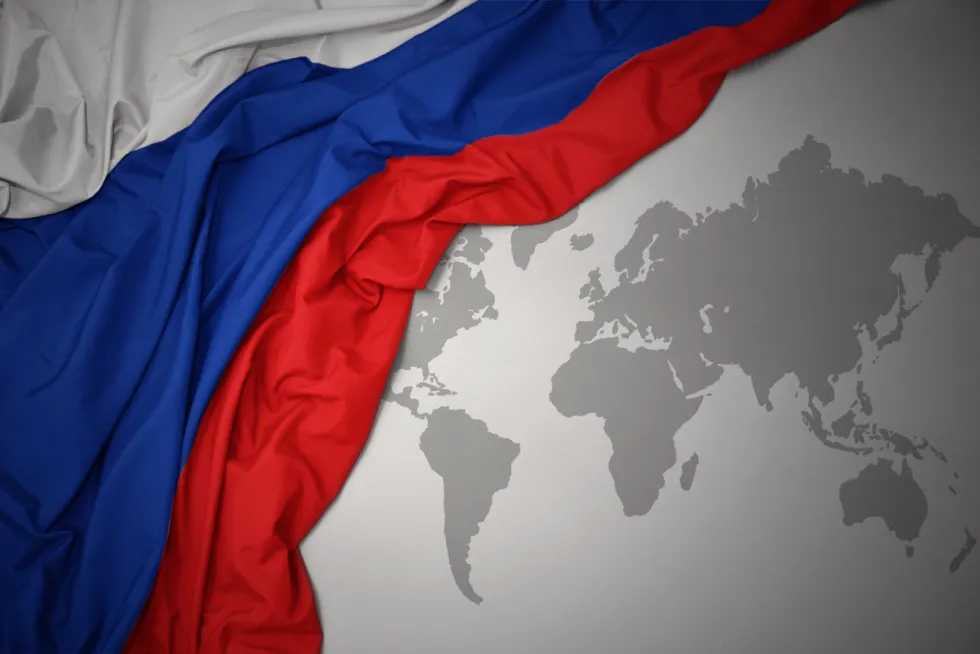
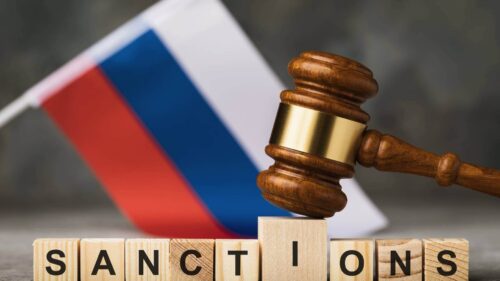
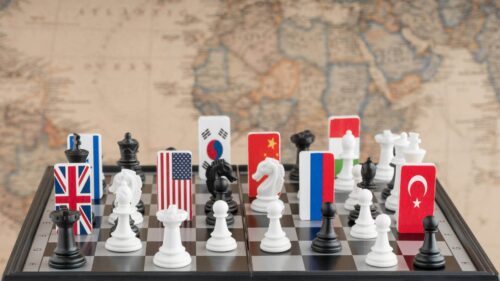
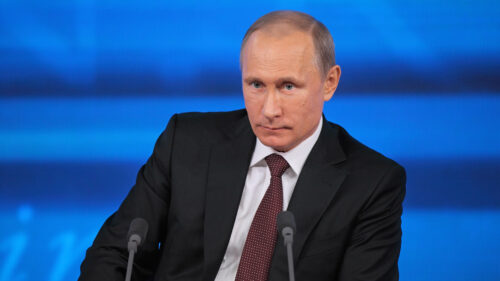
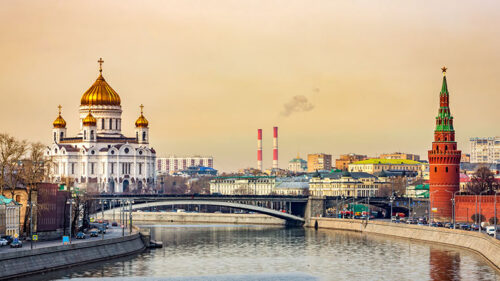


Comment